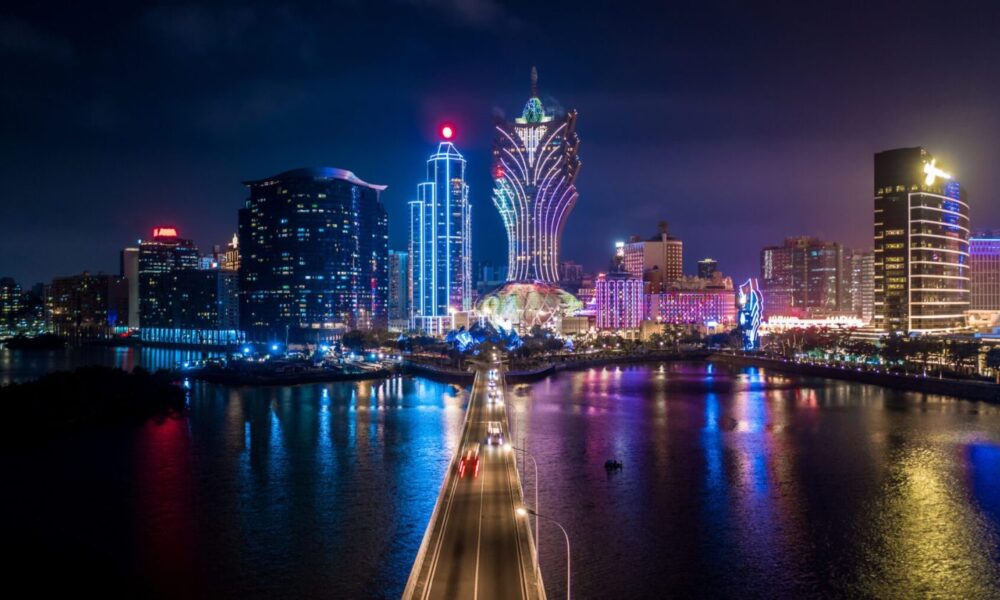Casinos in Macau are reorienting toward premium-mass customers. So reported various Jefferies Equity Research analysts after a fact-finding mission to China.
Analyst David Katz wrote that all the companies with which his team met were refocusing toward the premium mass market and away from the base mass market, a staple of Las Vegas Sands, among others.
Asked Katz, “Are they being priced out?” He concluded that, despite various casino strategies (including free food and special events like NBA China), that remained “an open question,” especially since hotel rooms would be getting more expensive.
Katz cited the repositioning and refurbishment of SJM Holdings’s Grand Lisboa casino, Wynn Resorts’s long-standing high-end orientation, and new high-end capacity from Sands and Galaxy Entertainment as evidence of this shift. He said this raised a question over the future of Macau’s downtown casinos, traditionally marketed to the long-vanished VIP player.
The Jeffries team found underlying trends in Macau to be “solid” and “supportive of March volumes,” the latter anywhere from “choppy to modestly higher. The important trend, whereby patrons are traveling for more days post the February holiday period, appears to be supporting the seasonally weaker current month.”
Another positive for operators is the promotional climate, described as benign and stable, particularly when compared to that of 2024.
Katz also saw harbingers of upward growth in multiple new capex projects. He highlighted Galaxy’s Andaz megaresort, described as being in the tradition of Venetian Macao. Its amenities include a 715-room hotel, 40,000 square meters of meeting space, and a 16,000-seat arena,” all seen as potential drivers of events and conventions, which in turn are expected to propel casino win.
Sands was described as in progress on its conversion of 4,000 Londoner rooms into 2,400 suites. Katz reported that Sands expects to be finished by May 25. “The significant revenue opportunity from the suites should more than offset the lower number of rooms, despite removing capacity” for mass-market players.
Fellow Jefferies analyst Anne Ling noted some “concerns that the Londoner rooms have been late to market. Our tour of the market suggests that the property is nearly fully completed and in positive positioning to take share.” She added that the performance of Marina Bay Sands in Singapore and a share-repurchase campaign would also help the stock.

Turning to other Sands properties, Katz said the retail offering at The Parisian “needs adjustment” and that, per CEO Rob Goldstein’s announced retirement, “Discussion on succession suggests plan has been in place for some time and there should be no expectation of change as a result.”
More premium-mass gambling inventory at Galaxy’s casinos was said to be helping sustain Chinese New Year trends, as was firm retail business. Galaxy was turning more and more to electronic table games, popular with younger players (who tend to make smaller average bets).
Galaxy’s downtown Star World casino was cited as an example of a VIP property struggling in the current environment. Its coping strategy is to turn toward the mass market.
MGM Resorts International’s Macanese casinos were said to be “operating a bit better than the market and remaining focused on margins rather than market share.” Like The Londoner, MGM Cotai is cannibalizing smaller rooms for suite product, having already converted 60. It is also spending $28 million on villas for players.
Management at MGM said visitors are tending to stay longer, thereby stabilizing gaming revenue. Also, demand for games is broadening, even for poker, “which has added to capacity and is also positive for stabilizing property hold.” MGM’s premium-mass business was described as “good” (ditto mass-market trade), with mid-level players said to be challenged by the Chinese economy.
Visiting the Wynn casinos, Katz’s team found “encouraging protracted post-CNY trend rather than the sharp peak [and] anecdotal evidence that customers traveled elsewhere before Macau stay.” Management said it was encouraged by newly added amenities and still “views the market as under-roomed, although property is feeling busier, with more energy, which is positive.”
Skipping over Melco Resorts & Entertainment, the Jefferies squad dropped in on SJM. The latter is still aiming for a five percent market share for its Grand Lisboa palace, plus a footbridge to Wynn’s mass-transit station. It boasts 250 tables and Katz saw room for 150 more.
Chinese New Year and the weeks afterward were seen to have brought “more quantity than quality” in terms of players. SJM leadership acknowledged that it would take time to reorient its casinos toward the premium-mass market. Katz added that SJM “needs to upgrade its service and products” in order to achieve that goal.
Katz concluded that Macau “appears at least as good as we expected.” He said it compared favorably to United States markets in its prospects for mid-single-digit growth this year.
The analyst was most bullish on Wynn, “which is generating external growth elsewhere and internal value potential.” He also liked Sands, although he counseled patience regarding The Londoner’s relaunch.
Praise also went to Galaxy for adding premium-mass capacity at its Capella casino and for pursuing special events such as concerts. MGM “appears to be executing solidly, which is tangentially supportive of the shares.”
Coming out of Chinese New Year, Ling said that mass-market gambling revenue is trending down eight to 10 percent. VIP win was averaging three percent of the marketplace.
For the week ending March 16, win sank three percent to an average of $77.6 million per day. “Industry sources” expected an average daily win of $72.5 million to $80 million per day for the remainder of the month, for a full-March tally of between $2.3 billion and $2.5 billion.

